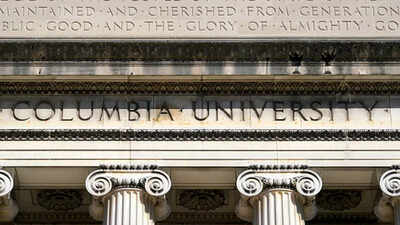
When the United States tightened visa regulations last spring, international students at Columbia University faced unprecedented uncertainty. Thousands of visas were revoked under the Trump administration’s ongoing crackdown on the conduct of foreign students. On campus, the presence of plainclothes Immigration and Customs Enforcement (ICE) agents created a palpable sense of unease, leaving students and scholars unsure of their status. According to Columbia Spectator, several affiliates, including Mahmoud Khalil, Rümeysa Öztürk, and Mohsen Mahdawi, were detained for their pro-Palestinian advocacy before being released, sparking concerns about the freedom of speech for international students.
A financial safety net
In response, Columbia University moved quickly to protect its international community. Acting University President Claire Shipman, announced in April the creation of the International Student Hardship Fund, designed to help students cover “unanticipated” travel and visa-related costs. Since its inception, the fund has disbursed nearly $500,000, providing grants ranging from $1,000 to $2,500 to students in good academic standing, Columbia Spectator reports. Shipman highlighted the collaborative support from the Office of the President, the Board of Trustees, and alumni donors in making this possible.
Speed and support in action
The university’s efforts extended beyond financial aid. The International Students and Scholars Office (ISSO) accelerated the issuance of I-20 forms — a document certifying that an international student is eligible to study in the US — completing approvals within 24 hours instead of the standard one to two weeks. International student advisors tracked applications globally, offering personalized guidance and troubleshooting at every step. In cases where visa delays threatened to affect enrollment, the university explored alternative academic paths to ensure students could begin their programs without disruption.
Welcoming students to a global community
Shipman emphasized Columbia’s holistic approach, noting that over 1,800 incoming students attended pre-arrival programs, and more than 1,000 new students participated in the New International Student Welcome Gathering at Lerner Hall in September. 16% of incoming students admitted to Columbia College and the School of Engineering and Applied Science for the class of 2029 are international, Columbia Spectator reports.
Preparing for policy shifts
Beyond the immediate support, Columbia is preparing for potential policy changes. The federal government’s proposed $100,000 fee on H-1B visas could cost the university an additional $10 to 20 million. In fiscal year 2025, Columbia sponsored 112 H-1B hires, including postdoctoral fellows, assistant faculty, and research staff. Shipman assured the community that the university will continue issuing guidance to help students navigate evolving immigration regulations.
A statement of commitment
“We support the same rights to free expression, due process, and fair treatment for all of our students,” Shipman wrote, as reported by Columbia Spectator. “The world comes to New York, and to Columbia, and we are the better for it.” Columbia’s swift response highlights the role universities can play in safeguarding international students amid regulatory uncertainty. By combining financial support, administrative agility, and personalized advising, the university has set a precedent for institutions grappling with similar challenges. In an environment where visa policies can shift overnight, Columbia’s $500,000 lifeline is more than just aid.







